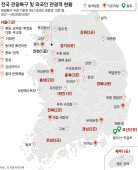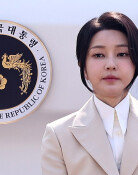[Editorial] Advice for the New Finance Minister
[Editorial] Advice for the New Finance Minister
Posted February. 09, 2009 04:03,
To jump-start the moribund economy, Strategy and Finance Minister-designate Yoon Jeung-hyun stressed at his confirmation hearing at the National Assembly the need for early introduction of additional budget, more support for companies implementing job-sharing measures, and shutting down nonviable companies. He also expressed his determination to help the newly poor and reinvigorate the flagging housing market while curbing real estate speculation. Yoons proposition revolving around the revving-up of the economy and the enhancement of the social safety net sounds convincing. Success, however, will largely depend on promptness and effectiveness.
One of his top priorities should be gaining trust from both the market and the public by implementing feasible policies. With the stock and foreign exchange markets showing signs of stabilizing and inflation being kept in check, the government now has enough room to concentrate its efforts on economic recovery, job creation and management of international payments. The governments role in the economy has grown bigger in the wake of the global economic crisis, but it must pursue a market-friendly approach rather than attempt to control the market. No less important is flexibility. If flaws are found in the process of policy implementation, policy direction must be reviewed without hesitation to immediately correct those flaws.
With no vice finance minister in place, President Lee Myung-bak should throw his weight behind the finance minister to help him exert his leadership in spearheading economy-related government agencies. In 1997-98, then Finance and Economy Minister Lee Kyu-sung played a pivotal role in steering the country out of the Asian financial crisis by coordinating those agencies. Former minister Lee said he could do so because he had face-to-face talks with the president 35 times and presided over meetings of the agencies 87 times. In this regard, President Lee is advised to give Yoon full authority to manage the economy unless the direct involvement of the president is needed.
To turn the economy around, people from all walks of life should also help in addition to the government. Shortly before the financial crisis hit in the 1990s, the opposition party, labor and several civic groups vehemently opposed the reform of labor and finance laws. A month-long general strike in January 1997 caused production losses worth 2.85 trillion won (2.1 billion U.S. dollars). The nearsighted militant approach by unions eventually caused the country to ask for a brutal bailout from the International Monetary Fund. Korea must avoid repeating past mistakes.
The ruling and opposition parties and conservative and progressive forces must join hands in the face of the unprecedented economic crisis. For the presidents new economic team to do its jobs well, all economic players should cooperate and refrain from blocking economic recovery. They should bear in mind that the biggest victim if the team fails is the Korean people.
Headline News
- N. Korea redefines S. Korea as ‘hostile state’ in revised constitution
- Samsung develops graphic DRAM with industry-leading capacity and speed
- Three questions allegedly leaked via text message during Yonsei Univ. essay test
- China to inject 340 trillion won in loans to support real estate sector
- Dodgers beat Mets to take 2-1 lead in NLCS







